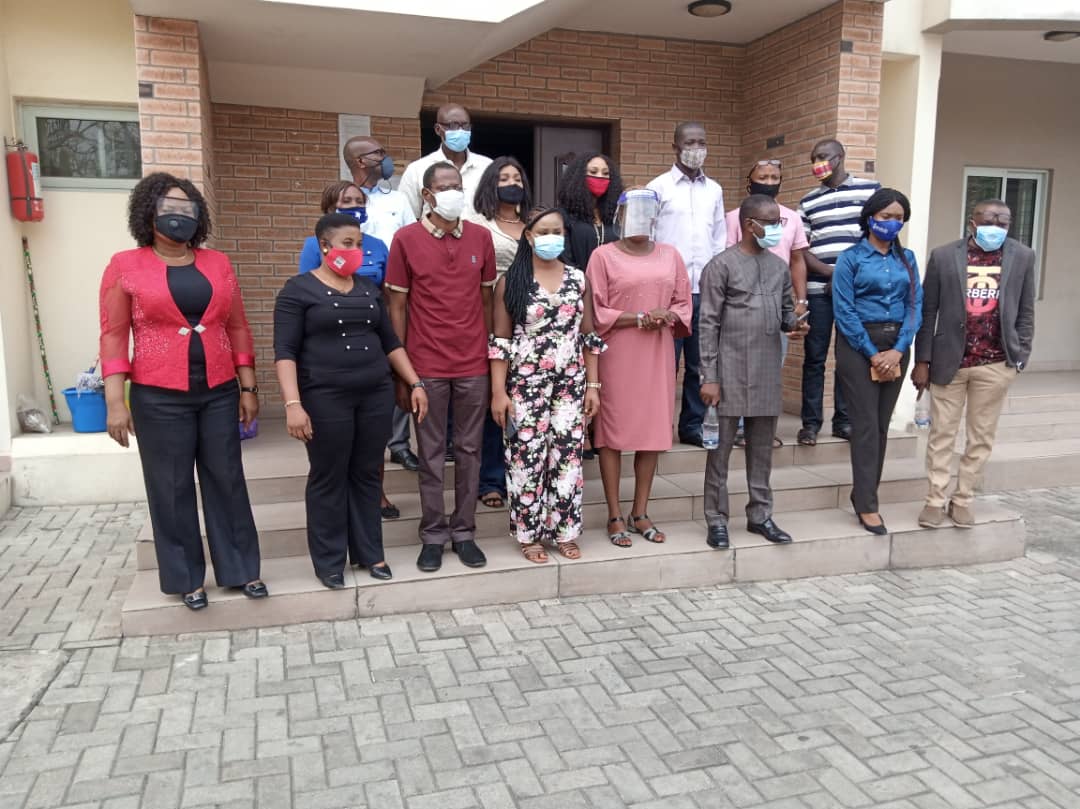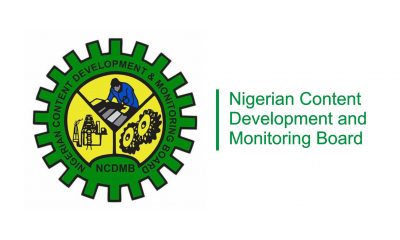Health
Media Literacy, Key In HIV/AIDS Response – NACA

For Nigeria to make better impact in HIV/AIDS response, there is the need to ensure that media practitioners are well educated on the intricacies of HIV/AIDS to enable them pass on the right messages to the public.
The South-South Zonal Coordinator of National Agency for the Control of AIDS (NACA), Dr Uduak Daniel, re-emphasised this recently after a three-day training workshop for Journalists in the zone on HIV/AIDS reportage.
Daniel, who was instrumental to the gathering of journalists reporting health in the zone, stated that the realization of how strategic the media is in HIV/AIDS response necessitated the organisation of the workshop after which participants are expected to put into practice what they garnered during the training in their various media across the South-South of the country.
“The media needs to be informed, and know the right things to do. So, we have a vision to have HIV/AIDS knowledgeable media in the South-South, and the only way for that to happen is to train the media in everything on HIV/AIDS, and how they can deliberately use whatever knowledge they have to come up with stories that would enhance social change”, she said.
She used the opportunity to call on governments at all levels in the South-South, and the country at large, to promptly fill the gaps warranted by the withdrawal of donor agencies from the country in HIV/AIDS response.
“That donor agencies are leaving the States is not a new thing, because they stated from the onset how long they intend to carry out their interventionist activities.
“After they leave, it is expected that the government would sit up and effectively own-up the interventionist measures already in place”, she stated.
According to her, “we should know that whatever they (donor agencies) do for us is strictly based on humanitarian interest. After they leave, it’s expected that the government should take the responsibility of owning the processes”.
Part of this responsibility, she continued, include: to ensure that everybody is protected against HIV/AIDS; everybody is knowledgeable on the pandemic; and everyone has access to diagnosis and treatment.
The Zonal NACA Boss also called on Journalists trained at the three-day workshop, which took place in Calabar, the Cross River State Capital, to ensure that they work according to the terms of reference given them in their various media in terms of their HIV/AIDS reportage.
“I’m looking forward to the platform being known as one through which advocacy on HIV/AIDS will come back to the front burner at all levels in the South-South”, she said.
Speaking on how stigma and discrimination has affected HIV/AIDS response, the Executive Director, Institute of Strategic Communications and Development, Fayman Omini, said stigma has always been a cog in the wheel of HIV/AIDS response.
“Stigma has has been a huge concern since the beginning of HIV/AIDS response in Nigeria. It occurs at different levels: community, facility, workplace, etc.
“Part of the problem is that most of the people are not knowledgeable about HIV/AIDS. Some people are driven by fear, so they stigmatize others”, he said.
The result, he explained, is that “people who are supposed to access treatment services are not going to get the services because of stigma at the service points, where the health care providers stigmatize them”.
Omini, who was the Lead Facilitator at the three-day workshop added that “when people who are infected are not having access to treatment, you know what that means”.
By: Sogbeba Dokubo
Health
‘How Micro RNA Research Won Nobel Prize’
Two United States scientists who unraveled the human micro RNA have won the Nobel Prize in Physiology or Medicine 2024.
Victor Ambros and Gary Ruvkun won the coveted prize for their work on microRNA as their discoveries help explain how complex life emerged on earth and how the human body is made up of a wide variety of different tissues.
MicroRNAs influence how genes – the instructions for life – are controlled inside organisms, including humans.
Every cell in the human body contains the same raw genetic information, locked in our DNA.
However, despite starting with the identical genetic information, the cells of the human body are wildly different in form and function.
The electrical impulses of nerve cells are distinct from the rhythmic beating of heart cells. The metabolic powerhouse that is a liver cell is distinct to a kidney cell, which filters urea out of the blood.
The light-sensing abilities of cells in the retina are different in skillset to white blood cells that produce antibodies to fight infection.
So much variety can arise from the same starting material because of gene expression.
The US scientists were the first to discover microRNAs and how they exerted control on how genes are expressed differently in different tissues.
The medicine and physiology prize winners are selected by the Nobel Assembly of Sweden’s Karolinska Institute.
They said: “Their groundbreaking discovery revealed a completely new principle of gene regulation that turned out to be essential for multicellular organisms, including humans.
“It is now known that the human genome codes for over 1,000 microRNAs.”
Health
WHO Begins Regulation On Antibiotic Waste
The World Health Organisation (WHO) has begun acting to curb effects of antibiotic pollution.
The new guidance on wastewater and solid waste management for antibiotic manufacturing sheds light on this important but neglected challenge ahead of the United Nations General Assembly (UNGA) High-Level Meeting on antimicrobial resistance (AMR) taking place on 26 September 2024.
The emergence and spread of AMR caused by antibiotic pollution could undermine the effectiveness of antibiotics globally, including the medicines produced at the manufacturing sites responsible for the pollution.
Despite high antibiotic pollution levels being widely documented, the issue is largely unregulated and quality assurance criteria typically do not address environmental emissions. In addition, once distributed, there is a lack of information provided to consumers on how to dispose of antibiotics when they are not used, for example, when they expire or when a course is finished but there is still antibiotic left over.
“Pharmaceutical waste from antibiotic manufacturing can facilitate the emergence of new drug-resistant bacteria, which can spread globally and threaten our health. Controlling pollution from antibiotic production contributes to keeping these life-saving medicines effective for everyone,” said Dr Yukiko Nakatani, WHO Assistant Director-General for AMR ad interim.
Globally, there is a lack of accessible information on the environmental damage caused by manufacturing of medicines.
“The guidance provides an independent and impartial scientific basis for regulators, procurers, inspectors, and industry themselves to include robust antibiotic pollution control in their standards,” said Dr Maria Neira, Director, Department of Environment, Climate Change and Health, WHO. “Critically, the strong focus on transparency will equip buyers, investors and the general public to make decisions that account for manufacturers’ efforts to control antibiotic pollution.”
Health
Kebbi Harmonises Doctors’ Salaries To Curb Brain Drain
In a concerted effort to curb brain drain, the Kebbi State Government has harmonised medical doctors’ salaries to be at par with their colleagues in the federal government’s tertiary health facilities.
Kebbi State Commissioner for Health, Musa Inusa-Isma’il, disclosed this at the handing over of ambulances to the state-owned health facilities at the Ministry of Health in Birnin Kebbi yesterday.
Inusa Isma’il, according to a statement by Ahmed Idris, the Chief Press Secretary to the governor, said the essence of the harmonisation was to retain the existing medical doctors and attract more to the services of the state.
According to him, the doctors across the state had already started enjoying the new salaries from August 2024.
He said the release of the vehicles was in fulfilment of Governor Nasir Idris’ promise to uplift health care services in the state.
“His Excellency said I should inform you, the beneficiaries of this gesture, that the vehicle should be strictly used for the intended purpose. It should not be used for anything else.
“If there is no referral case, each of the vehicles must be parked at the hospital by 6 pm. The governor said you should warn your drivers against reckless driving as well as violating the instructions.
“We should also do everything possible to reciprocate the gesture by working according to the terms and conditions attached,” he advised.
The benefiting health facilities included Sir Yahaya Memorial Hospital, Birnin Kebbi; State Teaching Hospital, Kalgo; General Hospital, Argungu; General Hospital, Yauri; General Hospital, Zuru; and General Hospital, Bunza.
In his speech, the permanent secretary of the ministry, Dr Shehu Koko, recalled that the ambulances were handed over to the ministry last Friday by the governor for the onward handover to the benefiting hospitals.
He observed that the ambulances would go a long way in improving the referral system in the state, adding that delays in reaching the secondary and tertiary facilities would be eliminated.
The permanent secretary attributed the high rate of maternal mortality in the country to delays in getting to the health facilities for proper medical care.
“We believe with the provision of these ambulances, part of the gaps we have in our referral system will be addressed, whereby patients who require secondary healthcare could be easily transported to secondary and tertiary health centres, where they can get such help,” he said.
In a goodwill message, Commissioner for Information and Culture Alhaji Yakubu Ahmed expressed gratitude to the governor for the support he has given to the ministry to excel.
While advising the beneficiaries to use the vehicles judiciously, the commissioner advised that services and maintenance of the vehicles must be prompt to derive the maximum benefits from the vehicles.
The commissioner also highlighted some achievements recorded by the government in the last year, including beautification of the state capital, completion of a multimillion-naira ultramodern state secretariat, road construction, construction and renovation of classrooms and upgrading of some health facilities, among others.
-
Nation5 days ago
Nigerian Police Debunk Reports Of Missing 3, 907 Firearms
-

 Business5 days ago
Business5 days agoHuman Capital Deficit Cost Nigeria USD380bn Capital Flight, Others – NCDMB
-
Entertainment5 days ago
Tems Becomes Co-owner Of MLS Club
-
News5 days ago
RSG Promises Continued Investment In Healthcare Infrastucture
-
Politics5 days ago
Nwodo, Secondus Hail New PDP National Secretary, NWC
-
Nation5 days ago
Troops Recover Aircraft Engines From Crash Site, Eliminate 88 Terrorists
-
Business5 days ago
FG, States Mull Plan For Uniform Dev Template In Nigeria
-
Entertainment5 days ago
Valentine’s Day: Streaming Of Heartbreak Songs Increased Massively-Spotify

